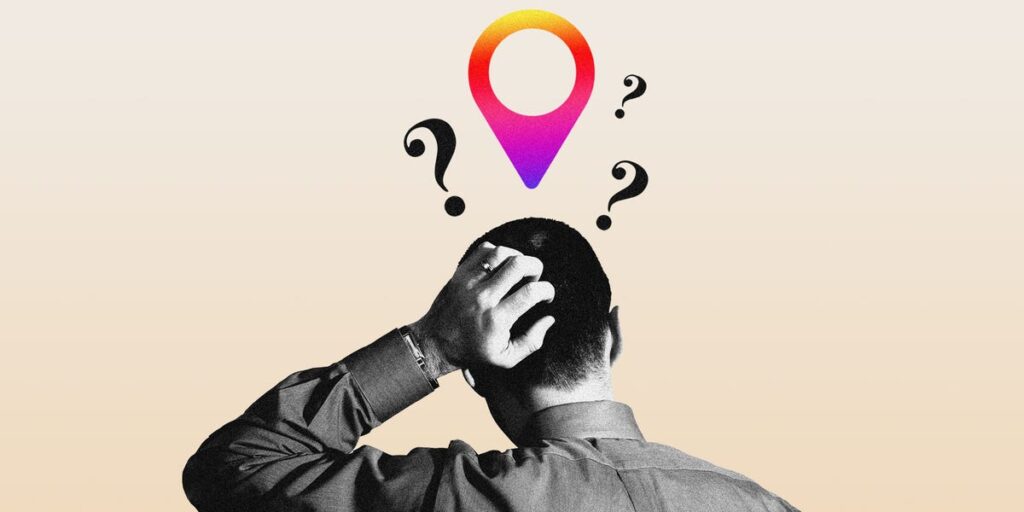First things first: Does Meta’s new Instagram Maps automatically share your location with everyone?
No. It doesn’t.
The new maps feature, which rolled out this week, does not share your location by default. If you do want to share your location, it will only be visible to your Instagram friends, or a subset of them.
Next: Is it reasonable for many Meta users to believe that Instagram Maps automatically shares their location with everyone?
Yes. That makes quite a bit of sense.
Which is why Instagram CEO Adam Mosseri seems to have spent much of the last two days trying to find every single person who’s complaining about the new feature on Instagram and Threads, and explaining that they’re wrong.
There’s a lot of this. And you can get a good sense of the anger the new map feature is generating by checking out this compilation of reactions, helpfully curated by Meta itself.
Or, you can just check out Instagram’s own Instagram account, which is currently devoted to explaining what it’s doing, and not doing — turns out it’s extra confusing, because some people who have tagged the location of a particular post are surprised that the post shows up on a map.
But like I said: It shouldn’t surprise Mosseri or anyone else at Meta when its users start posting about a new, seemingly super-invasive feature the company has rolled out — even if those users are totally mistaken.
That’s because: 1) Most people don’t have any idea of how their phones and software work. 2) Many people dislike Meta, and many think Meta CEO Mark Zuckerberg is untrustworthy or worse.
You can fact-check either of these assertions pretty easily.
For example: Ask someone if they think their phone is listening to them, so it can serve them ads. You’ll find that many people — even people who ostensibly know something about tech — believe that’s true, even though it most definitely is not. And if you don’t believe Meta, you can easily find people who are not Meta fans who can also explain why it’s not true.
And if you want evidence of Meta and Zuckerberg’s startling unpopularity, it’s just a click away. A staggering two-thirds of Americans have a negative view of Zuckerberg, per Pew Research.
And while we’re here, we may as well note that social media is really good at spreading false messages about things that seem true, or that people want to seem true. This isn’t something we’re supposed to spend time worrying about in our new political climate, but it’s always been true and it remains true.
And it’s one of the reasons why, periodically, Meta’s users rise up to pass along proclamations about Meta’s plans to screw them over. Or to pass along proclamations they think will protect them from Meta screwing them over, even though they’re all gibberish.
So when Meta rolled out a new feature that lets users share their location with their friends, or a subset of them, it was easy to predict that users might fear the worst — that Meta was doxxing its users without their permission.
Perhaps that’s why Instagram soft-peddled the feature’s launch this week, by quietly listing it alongside other “new features to help you connect with friends,” instead of a big flashy rollout. (A Meta rep sent me a statement explaining that location sharing is opt-in only, but I’ve already explained that above; I’ve asked Mosseri for comment.)
The map itself isn’t even obvious on the app at first glance. To find it, look for the messages button on the top right of the screen. My own map tells me that almost no one I follow on Instagram is using this thing, at all.
Which makes me wonder why Instagram is bothering with this. Yes, Snap has its own version, and Meta has copied Snap in the past, but Snap’s one has been around for years. Why now?
Read the full article here


